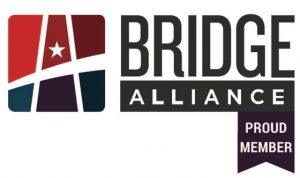E-Congress
YLI Home
By now you should have completed Page One of the Phase II Research Guide. The next step is to begin thinking about how you will use this information to write a bill to submit to E-Congress.
How will you address this issue in writing a bill of your own? For example, if you selected the environment as your topic, you probably realize that you could write several bills; pollution in our waterways, research into alternative sources of energy, drilling for oil in Alaska, and endangered plants and animals are just a few.
Like you, Members of Congress face this decision every day when attempting to write legislation. Factors for you to consider when selecting a bill to write are listed below, along with student sample legislation from earlier sessions of E-Congress.
Identify National Issues
Your bill will get the most support from students in other parts of the country when they feel that it matters to them, too.
Student Sample: One E-Legislator from Maryland wrote an excellent bill that created more funding to clean up the Chesapeake Bay. Unfortunately, it did not pass because students from states other than Maryland, Virginia, and Delaware did not see it as important.
Needs of Your Constituents
Remember that a constituent is a person who is represented by a specific elected official. In E-Congress, your constituents are your fellow E-Legislators, students from schools all over the country.
Student Sample: One E-Legislator authored a bill to increase the minimum wage because he knew his peers (constituents) were interested in earning more money in the part-time jobs they held after school.
Personal Interest or Expertise
Many Members of Congress write legislation based on an area where they have specific knowledge or interest. For example, Representative Jack Quinn (R-NY), a former teacher, co-sponsored a bill to prevent bullying in schools.
Student Sample: Another E-Legislator had a personal interest in the amount of garbage that was being dumped in the ocean. She lived near the coast and was impacted by the pollution, so she proposed a bill to reduce the amount of trash that could be disposed of in open waters.
Political Party Affiliation
Members of Congress often sponsor legislation that is a priority to their political party.
Student Sample: One E-Legislator chose to draft hate crime legislation. He was inspired by personal experience, and he also knew that this issue was an important one to the members of his political party.
Current Priorities
Often, bills in Congress reflect events in the news or trends in society.
Student Sample: One student felt that national security was a priority after the events of September 11, 2001. He proposed that all trains have an armed guard on board to protect the passengers and crew.
Innovative Solution
Feel free to come up with a creative approach to solving a tough problem.
Student Sample: One year a group of students were concerned about the increasing percentage of obesity among America's young people. To combat this, they authored a bill that required school cafeterias to offer fewer high-fat, high-calorie options and increase the number of healthy, fresh foods they served. It was the most successful legislation of the session!
